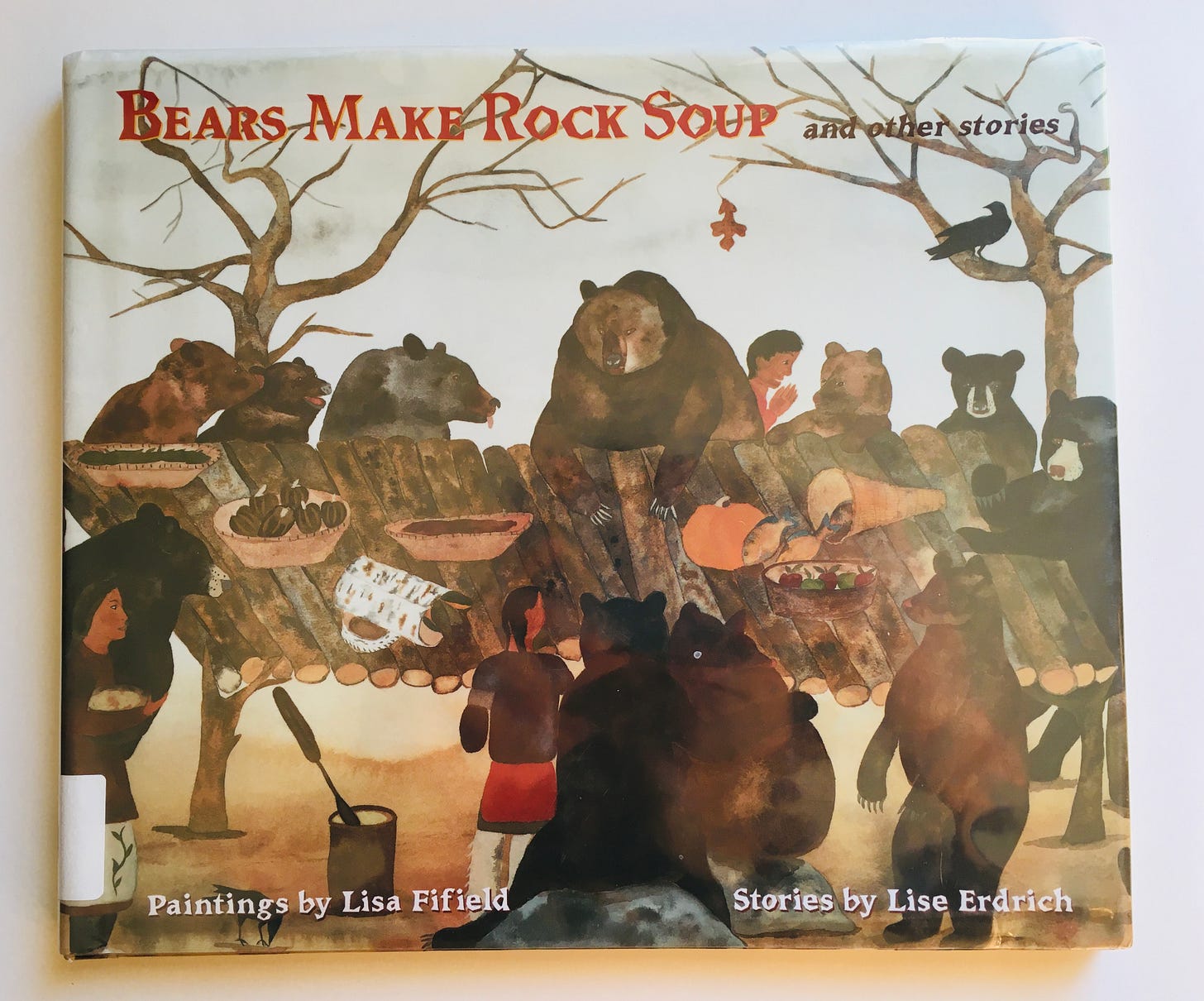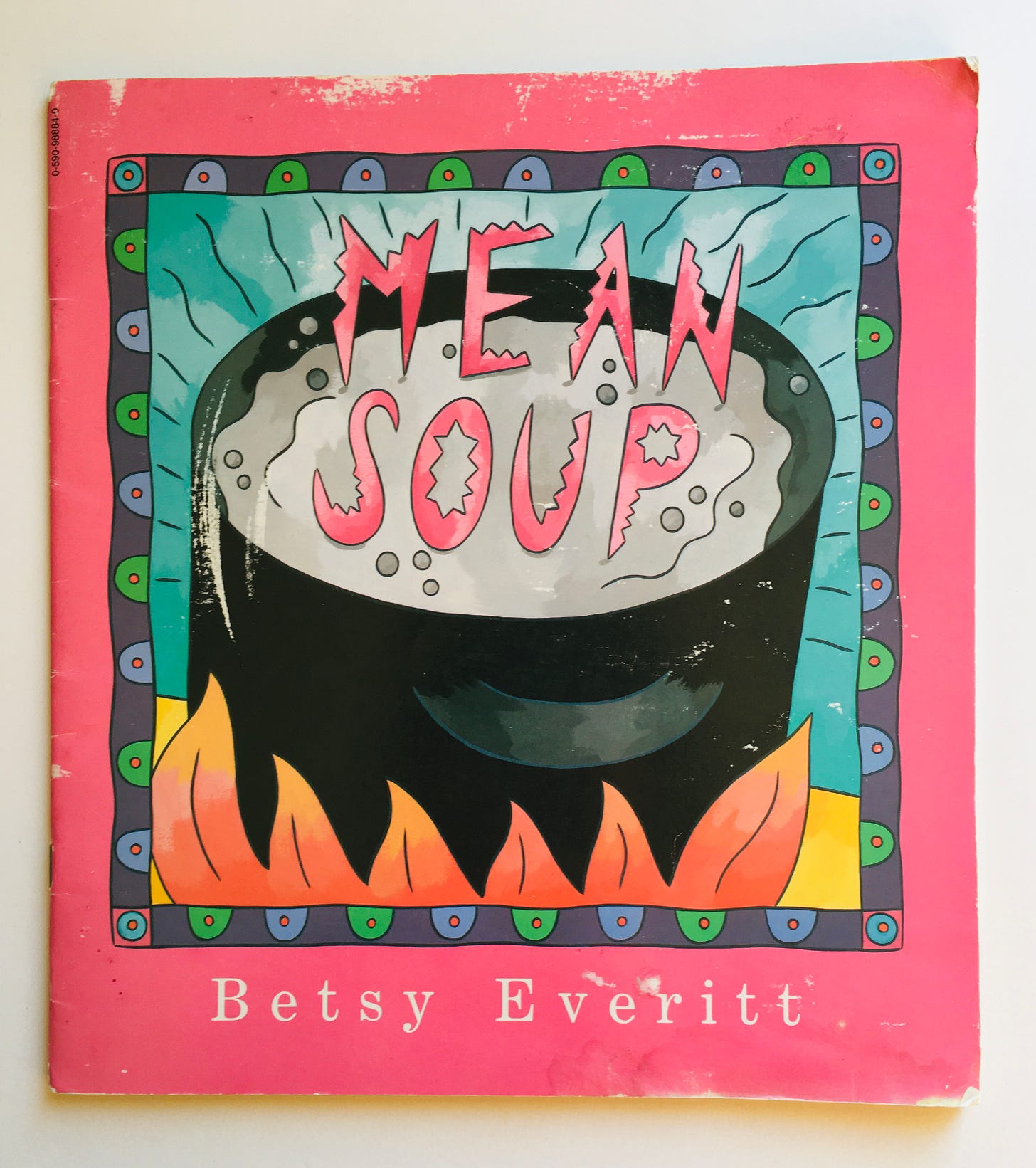Can we read? No. 24
Good morning! It’s a gloomy day thus far here in South Central Wisconsin but we have bagels and hot tea and The Yule Tomte and the Little Rabbits and Elizabeth Mitchell’s Christmas album, and we’re all okay. (I’m not sure this is entirely true but it’s at least somewhat true.)
A few things before we get started:
I am one of those horrible people who is finished Christmas shopping by mid-November, but if you’re looking for a last-minute gift, Bookshop.org offers digital gift cards. I love gift cards that allow me to buy books (of course I do). Consider it if you still need to get something!*
Also, though this is entirely unrelated to books, I want to say: if you are a parent, grandparent, auntie/uncle — a child’s grownup of any kind — who has spent the last month (hell, the last NINE MONTHS) making extra magic for your kid/s, I see you. I know everything you’ve done, because I have done it (am doing it) too. I know how much (just how very, very much) it takes, and I offer this: no matter how old your children are, no matter what “magic” means to you, it matters. It matters deeply. Please remember to give yourself some of the love and presence you are endlessly giving others. You are held by the Universe and you are loved so damn much.
That’s all.
Guji Guji by Chih Yuan-Chen (2003)
If I had to make a short list of my 4yo’s favorite books this year, Guji Guji would be on it. The weird, goofy story of an egg that rolls down a hill and accidentally lands in a duck’s nest (the mother duck doesn’t notice because she is busy reading — obviously I loved this book immediately), Guji Guji grows up “a rather odd-looking duckling” (whose bizarre name was the first thing he said when he hatched, and it stuck). One terrible day, three crocodiles come out of the lake and confront Guji Guji about who — or rather what — he really is. “I am not walking like a duck, I am a duck!” Guji Guji tells them, but they laugh, of course, and not only cause him to doubt himself, but ask him to trick his family so they can eat the ducks up. After some sweet soul-searching, Guji Guji decides he is not a bad crocodile (though he acknowledges that he’s not exactly a duck either) and comes up with a plan to outwit the crocodiles. I won’t reveal the way in which Guji Guji delivers the crocodiles their just rewards — suffice it to say that I love this quirky title for its plucky hero, its clever narrative, and its comforting messages about love, belonging, and trusting ourselves. There are bad crocodiles out there — when we know ourselves, it’s easier to beat them.
Bears Make Rock Soup and Other Stories by Lise Erdrich, illustrated by Lisa Fifield (2002)
How does one read a story collection to the littlest of folks — the ones who can’t sit through any pages without images, the ones who can barely make it through a couple paragraphs? You start small, and this unique and captivating title is the perfect answer to that dilemma. Erdrich (yes, daughter of Louise, and member of the Turtle Mountain Band of Plains Ojibway) and Fifield (member of the Onieda Tribe of Indians of Wisconsin) have come together here to create a collection of short — very short, 3-5 paragraphs long short — stories about the relationships between people and animals. Sometimes they are pourquoi tales (narratives that explain why something is the way it is, or how things came to be), sometimes they are not, but they are all simple and deeply evocative — conjuring very clear internal images alongside Fifield’s paintings, which would make them perfect to learn and tell without the book, from memory. I haven’t found many excellent collections with stories of such brevity, stories that even toddlers can sit through — so this is a rare title, and a good one at that.
*Note: sometimes Erdrich’s name is spelled “Lisolette” (this is what comes up if you Google this book, for instance) so if you can’t find this title in your library system or bookstore of choice, search using both names.
Big Bad Bruce by Bill Peet (1977)
Speaking of bears: Bruce is not a bear one would find making rock soup. One would not find him helping humans or contributing to the world. One would not find him being kind. One would, however, find him being himself: big and bad. Bruce, “a great shaggy brute” wanders up out of a canyon one day, putting the smaller creatures on edge, and with good reason. As long as Bruce is busy all is well, “but when the big fellow was feeling frisky and ready for fun it was time to beware of the bear.” Bruce’s idea of fun is familiar to anyone who has hung out with or around a bully — not the brutal, unrelenting kind but the more casual, off-hand kind. He likes to scare everyone, regularly tumbling rocks down onto the smaller creatures. One day, this smaller creature turns out to be a spirited little witch named Roxy, who is so disgusted by Bruce’s behavior she decides to fix him by baking a pie — “in a trizzle and a trice she whipped up a filling of blueberries and honey” — which she tempts Bruce with, to great success. A pie made by a witch is, of course, a magic pie, and this one shrinks Bruce right down to size, turning him into one of the small creatures he so often delights in tormenting. If you’ve never read Peet before, you’re in for a treat — he wrote and illustrated for Walt Disney Animation Studios for nearly 30 years (until he quit over a falling out with Walt over The Jungle Book) and it shows in all his work. (His images have a strangely familiar look about them even if you’ve never seen them before. This is most obvious if you grew up with the old movies, like I did — I can see a ton of visual similarities between Peet’s work and One Hundred and One Dalmations and The Sword and the Stone.) What I like best about this title — which is long and absolutely stuffed with wonderful, varied vocabulary words, both characteristic of Peet books — is that Bruce is completely unrepentant. Oh, there is a happy ending — Roxy keeps Bruce small and learns to like him, Bruce is content in his changed life — but there is no redemption, there is no “big bad bear becomes good.” Even as a bear shorter than a zinnia he just keeps on being his bad self, and I think that is part of the major appeal of this title, which has riveted both my 4yo and 6yo on every read: sometimes people just are who they are, sometimes they never change. Even bears.
Mean Soup by Betsy Everitt (1992)
Self-regulation is hard in my house. Not least because we’re all human, some of us still in the very beginning stages of our physical and emotional brain growth, and because at least one of us has some sensory challenges that make learning this especially tough, and also because social-emotional stuff is hard for humans because life is just hard. (I’ve given this a lot of thought.) Mean Soup is a gift, then — it allows each of us, adults included (ahem), not only to have a bad day but to make something good out of it. The reader learns this by watching Horace, a little boy who starts off from the very first line having a rough go of it, forgetting an answer at school, receiving a love note from a girl (ugh!), having his foot stepped on, being picked up from school by his mom’s weird friend (who nearly kills three poodles before they make it home). Horace walks in the door and is PISSED. He stomps on a flower, hisses and growls at his mother, and falls to the floor (I really, really relate to and love this book). “Let’s make soup!” his mother suggests, and by “soup” she means filling a pot with water and salt, and screaming into it. She goes first, then invites Horace to take his turn, and they scream and scream together. They stick out their tongues, and bang on the pot, and breath their best dragon breaths.
“What’s the name of this recipe?” asked Horace.
“Mean Soup,” she said.
And they stood together, stirring away a bad day.
Everitt has written a subtle and masterful book full of reality, honesty, empathy, love — even a real, concrete solution to something that can feel, often feels, unmanageable. Anytime we help our kids better understand their emotions and allow those feelings to exist without trying to fix them or change them in any way, we’re teaching them important life skills, holding space for real and valid parts of them, and loving them exactly the way they are. And if we learn to make mean soup, in the form offered here or any variations thereof, we learn to nourish our kids, and just maybe — cough — ourselves.
GLORY: Magical Visions of Black Beauty by Kahran and Regis Bethencourt (2020)
This is a photography book. This is a coffee table book. And yet it’s so, so much more than just either one of those. I had no idea what to expect when I put this on hold at the library, I just knew I’d been reading spectacular reviews, and it absolutely lived up to the hype. This visually stunning, inventive book is a mishmash of vibrant, fascinating, remarkably detailed photos — each of which brings to life various visions of Black culture (as they existed in the past, exist currently, and could exist in the future) through photos of Black children. My four-year-old sat with this book, uninterrupted, for an hour straight when I first casually left it laying about (strewing ftw!), poring over the images, which are powerful, spirited, beautiful. Interspersed among the photos are essays by the children pictured, and their words showcase the power — I’m going to use that word again because it’s really the right one for this book, over and over — accessible when one recognizes and celebrates oneself. I’m a huge believer in what I call “looking books” — ones I hand my children when they’re sitting on my bed in the morning when I’m getting ready for work; not necessarily ones we sit down and read, though sometimes it surprises me how long we discuss photos we’re just paging through. This is one of the best “looking books” I’ve ever seen, and certainly the best one of 2020. Share this book with the children in your life of all ages and stages. We need Black children to see themselves in pages like these, and we need everyone else to see them being seen.
Thanks for reading today. I’m sending my love your way 💚
Boring disclosure statement I am legally required to include (that I will try to limit as I am able): I am an affiliate of Bookshop.org and I will earn a commission if you click through and make a purchase, even a digital gift card.








